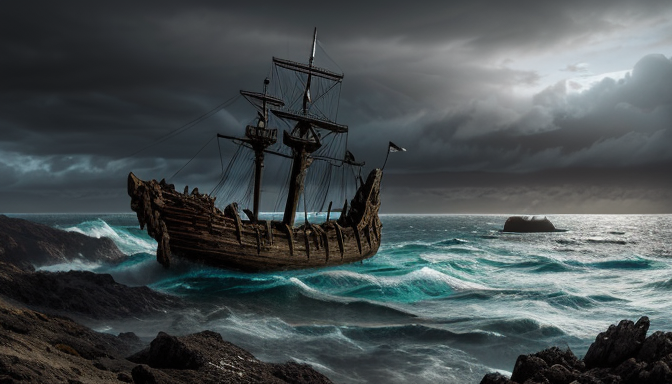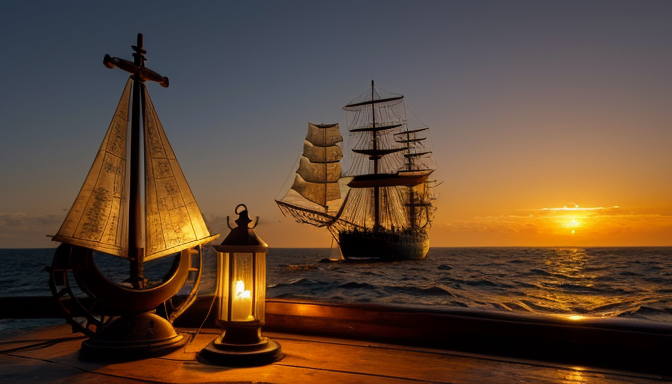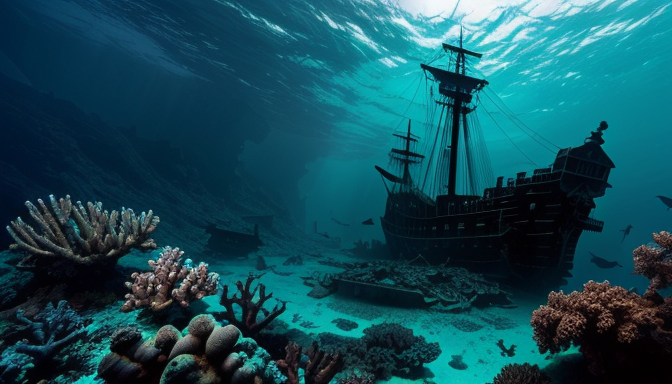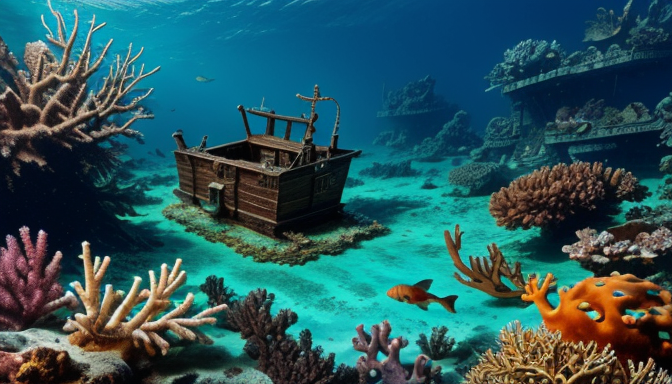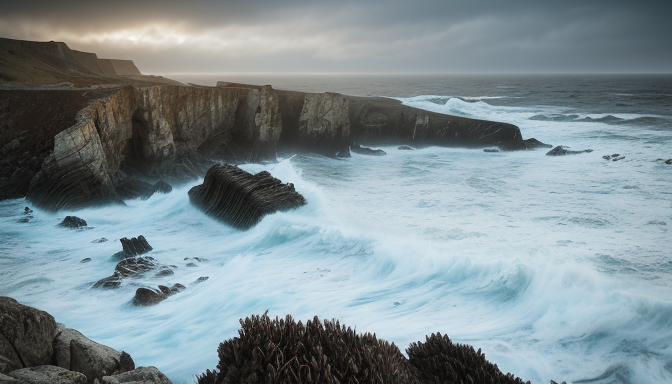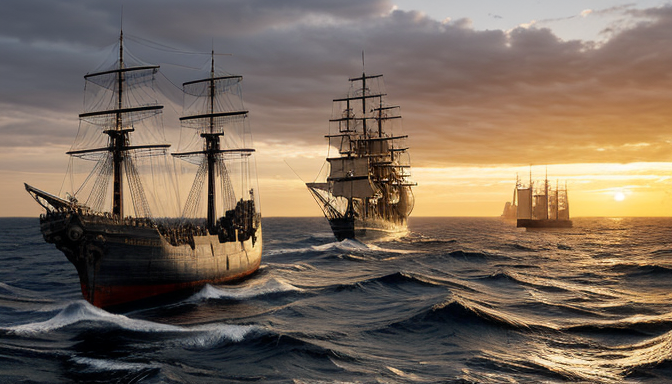Unveiling Secrets of the Sea: Maritime Legends Explored
Welcome aboard a thrilling journey through the vast and mysterious waters that have shaped our world’s history! The seas have always been more than just a body of water; they are a tapestry woven with tales of adventure, danger, and discovery. From historic vessels that sailed under the stars to epic sea battles that changed the course of nations, maritime legends are the heartbeat of our cultural heritage. Have you ever wondered how these stories began? Let’s dive into the depths of their origins!
Maritime legends often sprout from the rich soil of ancient civilizations. Picture yourself on a ship navigating through foggy waters, where whispers of mermaids and sea monsters dance in the air. These tales were not merely for entertainment; they served as cautionary fables for sailors facing the unpredictable nature of the ocean. Over time, these legends evolved, becoming more elaborate and intertwined with the cultures they originated from. For instance, the legendary Kraken from Scandinavian folklore evokes both fear and fascination, embodying the unknown lurking beneath the waves.
But it’s not just about the legends themselves; it’s about their lasting influence on our culture. Maritime stories have inspired countless works of art, literature, and folklore. They reflect the values and beliefs of societies, often serving as a mirror of human experience. Whether it’s the heroic tales of explorers like Christopher Columbus or the tragic stories of lost ships, these narratives resonate deeply, reminding us of our connection to the sea and the adventures that await.
The Origins of Maritime Legends
Have you ever wondered how the tales of the sea came to be? Well, let’s embark on a journey through the waves of time, exploring the origins of maritime legends. These stories are not just mere fantasies; they are woven into the very fabric of human history. From the ancient civilizations of the Phoenicians and Greeks to the daring voyages of explorers like Columbus and Magellan, the sea has always been a source of inspiration and awe.
Picture this: historic vessels, their sails billowing against the wind, cutting through the vast, mysterious ocean. Each ship carries with it tales of heroic battles and legendary figures. Imagine the fierce clashes between pirates and naval fleets, where the outcome of a single battle could change the course of history. These events birthed stories that would be told and retold, evolving over generations. For instance, the legend of the Kraken, a giant sea monster, likely originated from sailors’ encounters with colossal squids, transformed into myth through the power of storytelling.
Moreover, the age of exploration brought forth a plethora of maritime myths. Explorers, in their quest for new lands, often encountered the unknown, leading to the creation of legends surrounding mermaids, sirens, and other mystical beings. These tales not only entertained but also served as cautionary tales, warning sailors of the dangers lurking beneath the waves. The impact of these legends is profound, as they reflect the values and fears of societies, capturing the imagination of countless generations.
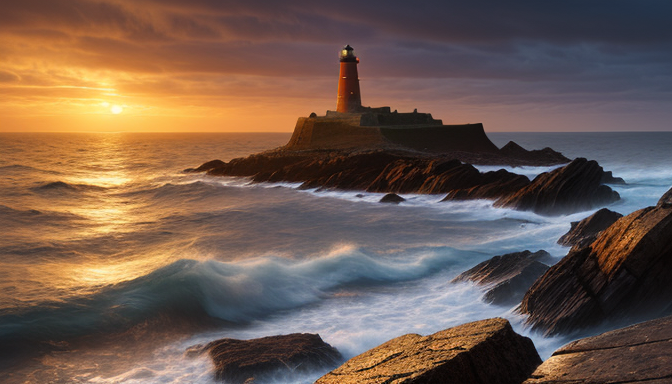
Influence of Maritime Legends on Culture
Maritime legends are not just tales spun from the depths of the ocean; they are powerful narratives that have shaped cultures across the globe. Picture this: ancient mariners, with salt in their hair and stars as their compass, would gather around flickering fires, sharing stories of mythical creatures and heroic voyages. These legends served as both entertainment and cautionary tales, teaching lessons about bravery, respect for nature, and the unknown. For instance, the legend of the Kraken, a colossal sea monster, warned sailors of the dangers lurking beneath the waves, while simultaneously igniting their imaginations.
Furthermore, maritime legends have significantly influenced various art forms, from classic literature to modern films. Works like Herman Melville’s “Moby Dick” and Disney’s animated hit “The Little Mermaid” draw heavily on these rich narratives, showcasing the allure and mystery of the sea. Moreover, many cultures have their own unique seafaring myths, such as:
- The Flying Dutchman – a ghost ship doomed to sail the oceans forever.
- Mermaids – enchanting beings that symbolize both beauty and danger.
- Poseidon – the Greek god of the sea, embodying the power and unpredictability of the ocean.
In essence, maritime legends are a reflection of humanity’s relationship with the sea. They encapsulate our fears, dreams, and the eternal quest for adventure, making them an enduring part of our cultural heritage. As we continue to explore the mysteries of the ocean, these legends will forever echo in the hearts of those who dare to venture into the deep.
Frequently Asked Questions
- What are maritime legends?
Maritime legends are captivating tales that revolve around the sea, often featuring mythical creatures, heroic sailors, and supernatural events. They serve to explain the mysteries of the ocean and have been passed down through generations, shaping our understanding of maritime culture.
- How did maritime legends originate?
The origins of maritime legends can be traced back to ancient civilizations where sailors shared stories to entertain and educate. These tales often emerged from real-life experiences, exaggerating the dangers and wonders of the sea, thus creating a rich tapestry of folklore.
- Why are maritime legends important?
Maritime legends are important as they reflect the values, beliefs, and fears of the societies that created them. They inspire art, literature, and even modern media, keeping the spirit of adventure alive and reminding us of our connection to the vast, mysterious ocean.
- Can maritime legends influence modern culture?
Absolutely! Maritime legends continue to influence modern culture by inspiring films, books, and even video games. They remind us of the timeless allure of the sea and the adventures that await, bridging the past with the present.

